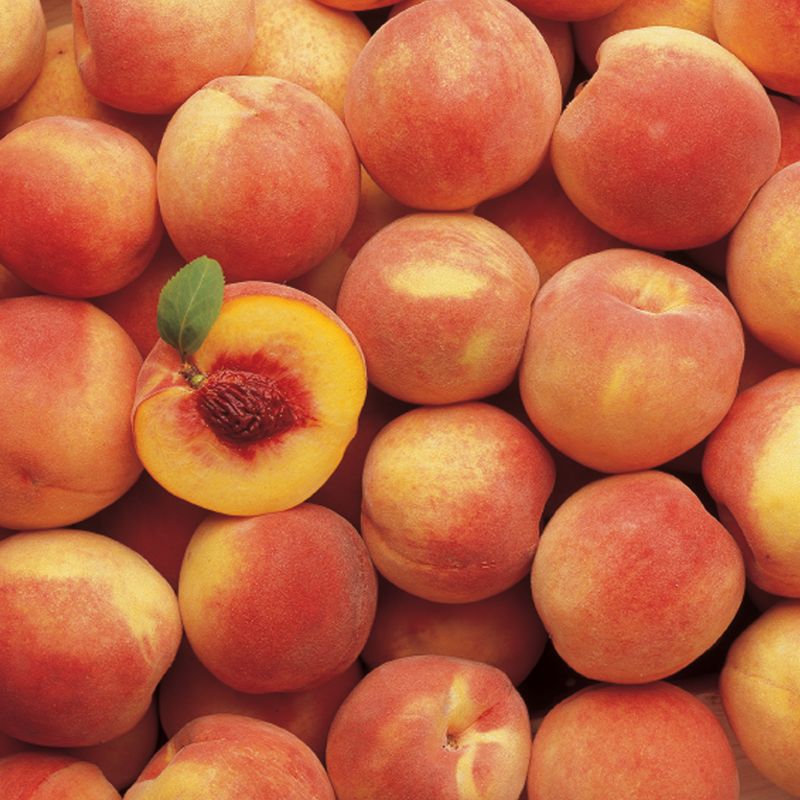Introduction
Peaches are juicy, sweet fruits that are not only delicious but also packed with essential nutrients and health-promoting compounds. From supporting heart health to aiding digestion, peaches offer a wide range of surprising health benefits. In this comprehensive guide, we’ll explore the nutritional profile of peaches, their health benefits, various uses, and answer common questions about these versatile fruits.
Nutritional Profile of Peaches
Peaches are low in calories and are primarily composed of water, making them a hydrating and refreshing snack. Here’s a breakdown of the key nutrients found in peaches:
Vitamins
Peaches are rich in vitamins A, C, and E, which are potent antioxidants that help protect cells from damage caused by free radicals.
Minerals
They contain minerals like potassium, which is essential for maintaining healthy blood pressure, and manganese, which supports bone health and metabolism.
Fiber
Peaches are a good source of dietary fiber, which aids digestion, promotes feelings of fullness, and helps regulate blood sugar levels.
Health Benefits of Peaches
Supports Heart Health
The high potassium content in peaches helps regulate blood pressure, reducing the risk of hypertension and cardiovascular disease. Additionally, the antioxidants in peaches help lower LDL cholesterol levels, further protecting heart health.
Boosts Immune Function
Peaches are rich in vitamin C, a powerful antioxidant that helps strengthen the immune system and protects against infections and illnesses.
Promotes Digestive Health
The fiber content in peaches supports digestive health by promoting regular bowel movements, preventing constipation, and supporting a healthy gut microbiome.
Enhances Skin Health
The vitamins A and C in peaches promote skin health by supporting collagen production, reducing oxidative stress, and preventing premature aging and wrinkles.
Supports Eye Health
Peaches contain beta-carotene, lutein, and zeaxanthin, which are important nutrients for maintaining eye health and reducing the risk of age-related macular degeneration.
Aids Weight Management
Peaches are low in calories and high in water and fiber, making them a satisfying and filling snack that can aid in weight loss and weight management.
Surprising Uses of Peaches
Culinary Uses
Peaches are incredibly versatile and can be used in a variety of culinary applications, including:
- Fresh eating
- Smoothies and shakes
- Salads
- Desserts like pies, cobblers, and crumbles
- Preserves, jams, and chutneys
Skincare Products
The vitamins and antioxidants in peaches make them a popular ingredient in skincare products, including:
- Facial masks
- Body scrubs
- Moisturizers
- Lip balms
Beverages
Peaches can be used to flavor and enhance a wide range of beverages, including:
- Peach tea
- Peach lemonade
- Peach-infused water
- Peach cocktails and mocktails
Aromatherapy
The sweet, fruity scent of peaches makes them a popular choice for aromatherapy and home fragrance products, such as:
- Peach-scented candles
- Essential oils
- Room sprays
FAQs
Are peach skins safe to eat?
Yes, peach skins are safe to eat and contain additional nutrients and fiber. However, be sure to wash them thoroughly to remove any dirt or pesticide residue.
Do canned or frozen peaches retain their nutritional value?
Canned and frozen peaches can still be nutritious, but be mindful of added sugars and syrups in canned varieties. Frozen peaches are typically flash-frozen at peak ripeness, preserving their nutritional content.
Can peaches help with weight loss?
Yes, peaches can aid in weight loss due to their low calorie and high fiber content, which promotes feelings of fullness and satiety.
Are there any risks associated with eating peaches?
While peaches are generally safe to eat, some individuals may be allergic to them. Additionally, consuming large quantities of peach pits or seeds can be toxic due to the presence of cyanide.
Can peach leaves be used for medicinal purposes?
Peach leaves contain compounds with potential medicinal properties, but they can also contain cyanogenic glycosides, which can be toxic if consumed in large quantities. It’s best to consult a healthcare professional before using peach leaves for medicinal purposes.
Are there any benefits to peach kernels?
Peach kernels contain amygdalin, a compound that breaks down into cyanide in the body. While small amounts of peach kernels are unlikely to cause harm, consuming large quantities can be toxic.
How can I choose ripe peaches?
Look for peaches that are fragrant, firm, and have a slight give when gently squeezed. Avoid peaches with bruises, soft spots, or wrinkled skin.
Conclusion
Peaches are not only delicious but also offer a wide range of surprising health benefits and uses. Whether eaten fresh, cooked into culinary creations, or used in skincare and aromatherapy products, peaches are a versatile fruit that can enhance both physical health and well-being. By incorporating peaches into your diet and lifestyle, you can enjoy their delicious flavor and reap their numerous health-promoting properties.
- 10 Surprising Health Benefits and Uses of Peaches - April 17, 2024
- Oysters: Nutrition, Risks, and How to Cook Them - April 17, 2024
- A High-Protein Diet Plan to Lose Weight and Improve Health - April 17, 2024


